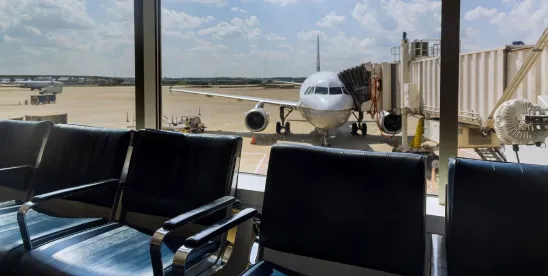In the recent case of Zephyrus Capital Aviation Partners 1D Ltd & Ors v Fidelis Underwriting Ltd & Ors (Re Russian Aircraft Operator Policy Claims (Jurisdiction Applications)) [2024] EWHC 734 (Comm), London’s High Court held that it had jurisdiction to hear claims brought by the owners and lessors of aircraft against various reinsurers of aircraft grounded in Russia. Some of the reinsurers sought a stay of the English proceedings arguing that the Russian court has exclusive jurisdiction. The High Court rejected the argument: the main reason for doing so being that, “the claimants are very unlikely to obtain a fair trial in Russia.”
FACTUAL BACKGROUND
The claimants consisted of a group of owners and lessors of roughly 200 aircraft and 301 engines that were leased to various Russian airlines prior to the Russian invasion of Ukraine. The relevant leases were governed by either English, Californian, or New York law and required the airlines to insure the aircraft separately against hull all risks and war risks. Unless the insurer was itself part of the London and international market, the leases generally required the lessees to ensure that reinsurance was obtained, for the vast majority of the insured risk, under contracts of reinsurance on the same terms as the underlying insurance and contained a cut through clause (CTC). A CTC clause provides an Insured with a direct right of action against the relevant reinsurer to recover the reinsurance proceeds payable to the Insurer in respect of a policy.
Following the invasion of Ukraine in February 2022, the claimants issued default and termination notices under the leases relying on, variously, the imposition of sanctions on Russia by the EU, the UK, and the US; material adverse change; failure to maintain the required insurance/reinsurance; and failure to pay sums due under the leases.
Despite the termination notices, the aircraft remain in Russia to this day, as the Russian airlines failed to return the relevant aircraft to the claimants. The claimants issued proceedings in the English courts to reclaim their losses (approximately USD$9.7 billion) from their reinsurers, (i) pursuant to the CTC in the reinsurance policies and (ii) because they are listed as “Additional Insureds” under the certificates of reinsurance. The reinsurance certificates do not specify any jurisdiction for coverage disputes, whereas the reinsurance slips contain Russian governing law and Russian exclusive jurisdiction clauses. On this basis, the reinsurers applied to have the claims stayed in England and litigated in the Russian courts instead.
While there are no formal restrictions on the claimants bringing their claims in Russia, the claimants argued that the Russian jurisdiction agreements should not be enforced because:
- There is a real risk that they would not get a fair hearing of their claims in Russia;
- Requiring the claimants to pursue their claims in Russia would be contrary to public policy, as it would undermine the sanctions imposed on Russia and give effect to the retaliatory countermeasures taken by the Russian State in response to those sanctions; and
- Requiring the claimants to pursue their claims in Russia would give rise to a multiplicity of proceedings and the risk of inconsistent judgments, where the matters in dispute affect the aviation insurance and reinsurance market generally and would best be managed and resolved by the English courts.
JUDGMENT
Mr. Justice Henshaw decided in favour of the claimants for several reasons, including:
- The Russian courts would be unlikely to be able to objectively determine whether the alleged losses were caused by war or invasion, namely the invasion of Ukraine;
- There is Russian State interest by virtue of contingent subrogated claims against the civil aviation sector or the Russian State itself (i.e., if the claims against the reinsurers were to succeed, then the Russian airlines2 exposure would be likely to take the form of subrogated claims and they would be facing claims from the reinsurers in respect of their losses. It was considered unlikely that the Russian courts would reach any conclusions which imply fault on the part of the Russian state authorities or the Russian airlines in connection with the invasion of Ukraine; and
- The claimants are all companies incorporated in what the Russian State regards as “unfriendly foreign states.”3
Other reasons included the “inevitability of increased multiplicity of proceedings and far greater risk of inconsistent findings on fundamental issues were these claims to proceed in Russia”. The Court also accepted that there was “an element of risk of personal attacks on individuals who in the ordinary course would attend trial” (such as experts or fact witnesses).
WHAT ARE THE IMPLICATIONS?
The judgment makes it clear that, despite the importance attached to giving effect to exclusive jurisdiction clauses, insurers/reinsurers may not be able to rely on such clauses to force insureds to litigate in jurisdictions where they are very unlikely to obtain a fair trial.
Insureds should carefully consider the enforceability of any exclusive jurisdiction clause which requires them to pursue their claim against insurers in an unfriendly foreign state and seek specialist legal advice.
Of course, this case serves as a general reminder for policyholders to carefully consider the governing law and dispute resolution provisions in any insurance or reinsurance contract that impacts their insurance arrangements. As this case demonstrates, dispute resolution clauses in (re)insurance contracts are often overlooked or added without much thought as to the potential consequences. This can result in unsuitable, inconsistent, or conflicting clauses which can prove very costly and time-consuming for policyholders when locked in an insurance coverage dispute. Attention to detail, and specialist legal advice, at the time of negotiating the insurance arrangements can result in significant strategic benefits and savings in time and costs in the event of any coverage denial.
If you have any queries in connection with policy terms, including governing law and jurisdiction clauses, please contact our Insurance Recovery and Counselling (IRC) team, which is one of the largest global policyholder-only insurance coverage practices. Our international network of IRC lawyers regularly work alongside lawyers from our highly regarded Aviation practice.
FOOTNOTES
1 The litigation related originally to 306 aircraft together with 40 engines and now (after some settlements) to 208 aircraft together with 31 engines.
2 It was not in dispute that the Russian state is interested in the performance of the aviation sector in Russia.
3 Russia has issued a list of ‘unfriendly’ countries amid Ukraine crisis.





 />i
/>i
